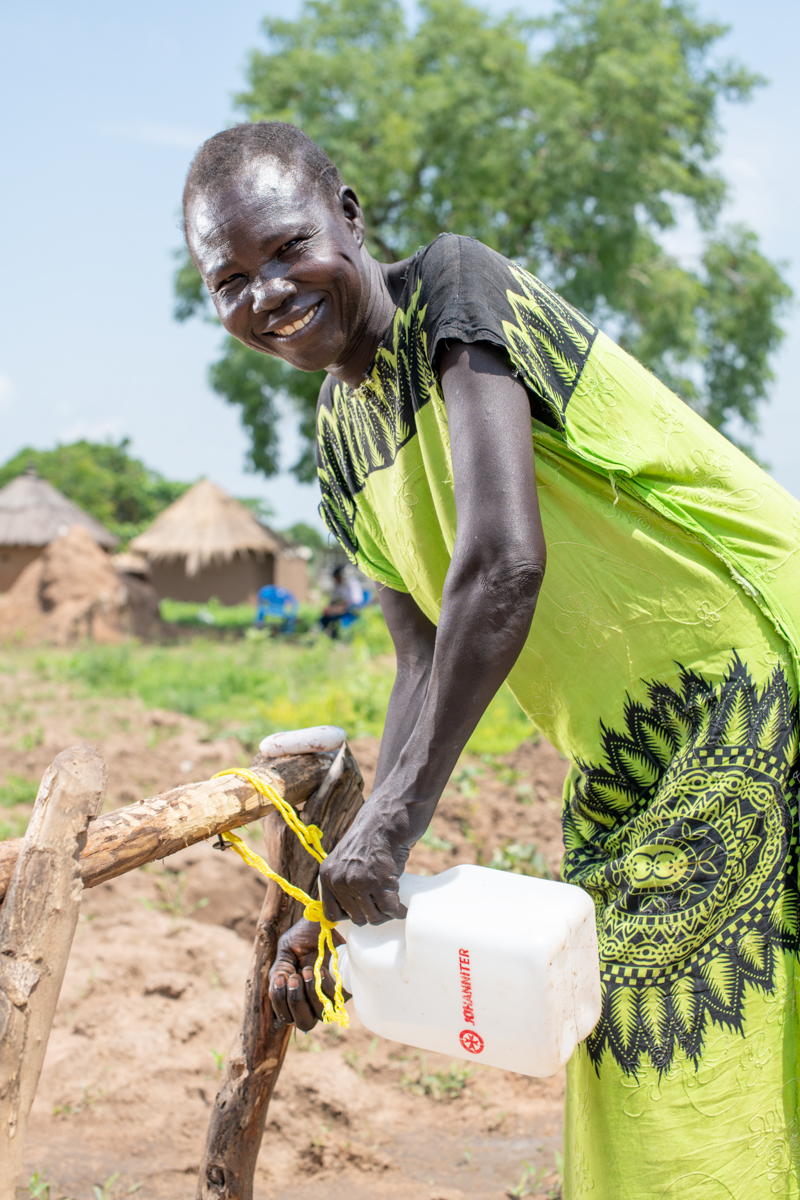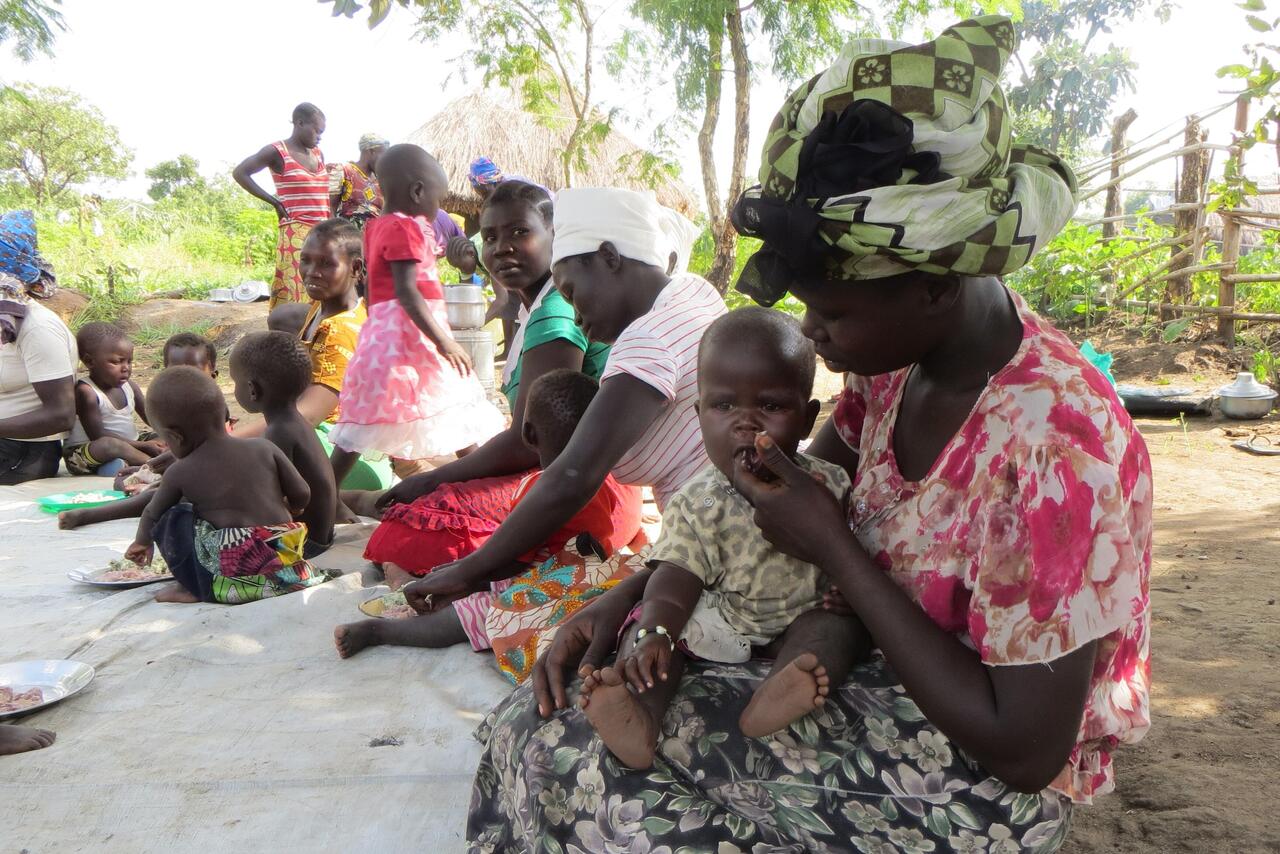Protecting life with hand washing
Berlin, 15. October 2021
The Corona pandemic has once again highlighted the importance of water and hand washing. We therefore implemented additional hygiene measures in many of our projects, including in Uganda. But what is the situation like after many months of the pandemic in the country? Jane Nakanwagi is our programme coordinator in Uganda and talks about the current situation and the project work in the country.

Even though the COVID 19 pandemic is no longer as present in the media as it was a few months ago, we are still in the middle of it. What is the situation in Uganda and how is the pandemic still affecting daily life?
The COVID-19 pandemic has had far reaching negative consequences on the Ugandan population. These include the loss of jobs and income sources as well as increased cases of gender-based violence and a overall disruption in access to health care. According to the Uganda Ministry of Health, the total number of COVID-19 confirmed cases is higher than 123.000 with more than 3.150 deaths.
So far, the Ministry of Health continues to receive the different types of the COVID-19 vaccines and efforts are being made in encouraging Ugandans to get vaccinated. So far almost two Million people have been vaccinated. At the same time prevention measures are still being emphasized to the population.
Keyword preventive measures: What role do these play in containing the virus? Through our partners, we have been able to provide hygiene items and information about the virus. Are the preventive measures continuing?
The COVID-19 procurements that were done with regards to encouraging handwashing for example in Kyangwali refugee settlement are still ongoing and the target 190 households that received the jerry cans, soap and handwashing equipment to facilitate the process of handwashing are still using the jerry cans and handwashing equipment. At the same time, the teams on ground across the Kyangwali, Rhino and Palorinya refugee settlement camps, through our partners CEFORD and ACORD, continue to conduct sensitizations on proper sanitation and hygiene best practices through the project hygiene promoters.
Is the virus still affecting project activities in the country?
The virus to larger extent still curtails project activities. For instance, for all projects implemented across the refugee settlements of Palorinya, Kyangwali, Rhino and Palabek, all project activities that gather more than 20 people like trainings have to be scaled down thus increasing the number of times a similar activity is to be done. The fear of cross infection of COVID-19 amongst some community members has also to a larger extent resulted into some project beneficiaries not participating in project activities which can be largely attributed to lack of masks, handwashing facilities and soap by the community members. We prevent this with our additional hygiene measures.
Project improves hygiene situation on site

To support the local people, our partner Community Empowerment for Rural Development (CEFORD) is building latrines and sanitary facilities for people with special needs in the Palorinya refugee settlement. This is also the case for Regina Acayo. The 50-year-old had to flee her home country, South Sudan, in 2017 because of the civil war. Now she lives in a house in the Palorinya refugee settlement, but it had neither a latrine nor a washing facility. She had to ask a neighbour to let her use the latrine whenever she needed to. To bathe, Regina would wait it out until late at night. "I waited until people went to sleep so I could wash in the yard because I didn't have my own washing facility," Regina says. Due to the dirty water that accumulated from the daily baths, her entire property was always dirty as well.
Since Regina is widowed, she has no one to take care of her and to build her own latrine. Therefore, CEFORD's sanitation and hygiene team built her her own hygiene and sanitation facility that can be used as both a latrine and a washroom. She was also given a simple hand-washing facility consisting of a 3-litre jerry can and soap to ensure that she washes her hands, especially after each use of the latrine. CEFORD has built 100 facilities like Regina's so far, with 1,100 to follow by the end of 2022. They fundamentally improve the hygiene situation, where hand washing plays a big and important role.
